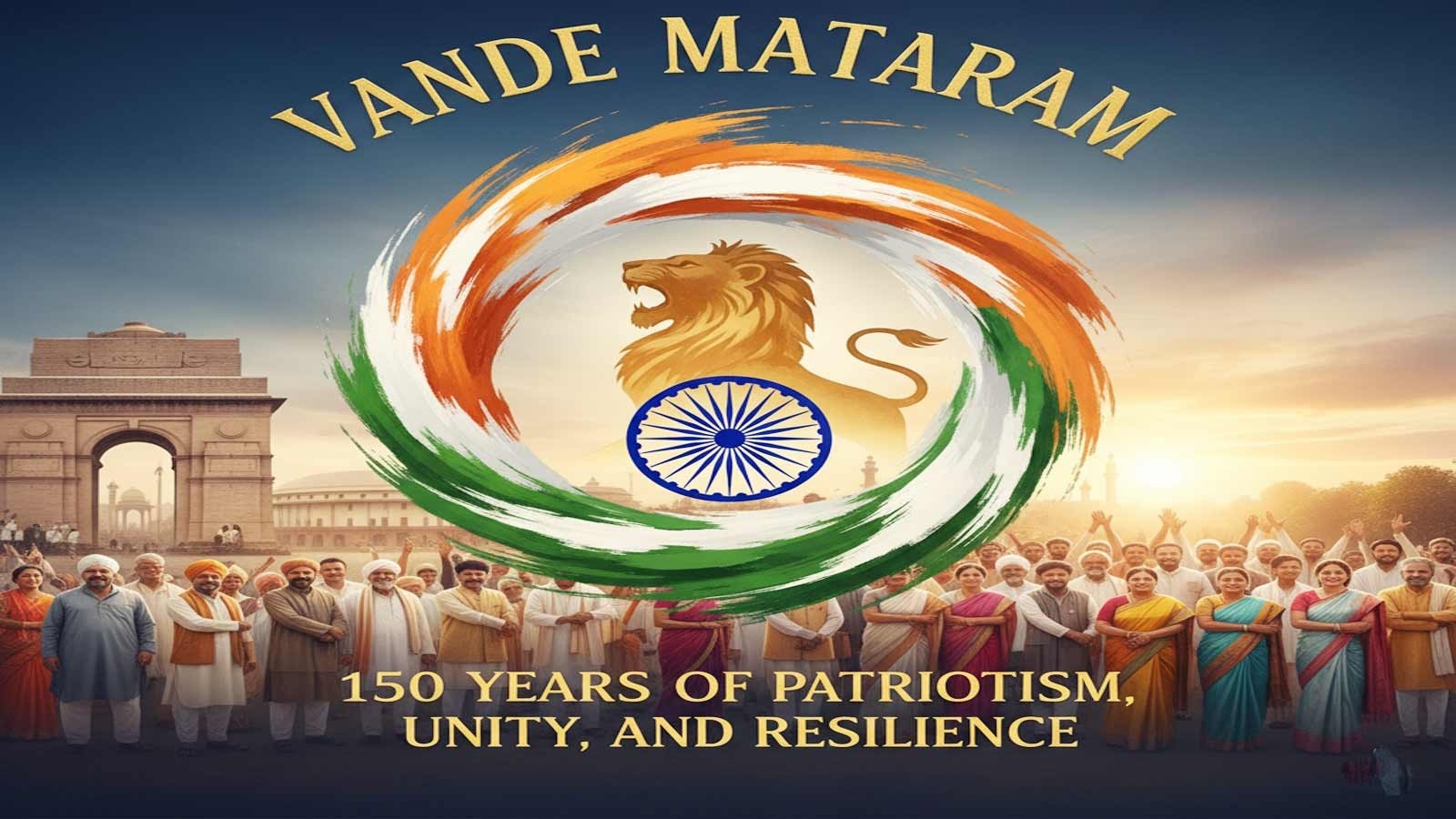India today marks a historic cultural milestone, celebrating 150 years of its National Song, Vande Mataram—a hymn that has inspired generations with its message of devotion, unity, and patriotism. Composed by Bankim Chandra Chatterjee in 1875 and later featured in his landmark novel Anandamath (1882), Vande Mataram transcended literature to become a powerful emblem of India’s national identity.
Set to music by Rabindranath Tagore, the song played a pivotal role in India’s freedom struggle, inspiring leaders, revolutionaries, and citizens to rally for the motherland. Today’s celebrations honor this enduring legacy and reaffirm the timeless values of courage, sacrifice, and national pride that the song embodies.
A Historical Journey
Vande Mataram first appeared in the literary journal Bangadarshan on November 7,1875, and was later incorporated into Anandamath, published in 1882. The song was first sung by Rabindranath Tagore at the 1896 Indian National Congress session in Calcutta. Its political significance emerged during the Swadeshi and anti-partition movements in Bengal, with the slogan Vande Mataram first raised publicly on August 7 1905 by thousands of students in Kolkata. The song’s appeal quickly spread beyond Bengal, becoming a unifying anthem for the burgeoning nationalist movement across India.
Literature Meets Patriotism
The novel Anandamath centers on a group of Sanyasins, known as the Santanas, who dedicate their lives to the motherland. They venerate India as a mother goddess, and Vande Mataram becomes their hymn of devotion—a “religion of patriotism,” as articulated by Bankim Chandra Chatterjee. Shri Aurobindo noted the symbolic power of this vision, portraying the motherland as a figure of strength and resilience rather than mere spiritual abstraction.
A Song of Resistance
By the early 20th century, Vande Mataram had evolved into a rallying cry for Indian nationalism. Societies such as the Bande Mataram Sampradaya promoted the song through public processions, known as Prabhat Pheris, while newspapers like Bande Mataram spread its message of unity, self-reliance, and resistance against colonial rule.
The British administration sought to suppress its influence, imposing fines on students and banning its public recital. However, such restrictions only heightened its symbolic significance as an anthem of defiance and solidarity.
Global Impact
The influence of Vande Mataram extended beyond Indian shores. In 1907, Madam Bhikaji Cama raised the tricolor flag in Berlin inscribed with the words Vande Mataram.
Indian patriots abroad, from Europe to South Africa, embraced the song as a symbol of resistance, chanting it during demonstrations and publishing magazines to promote nationalist ideals. The song inspired countless acts of courage, from protests against British repression to commemorating freedom fighters’ sacrifices.
National Recognition
In 1950, the Constituent Assembly of India officially recognized Vande Mataram as the National Song, honoring it alongside Jana Gana Mana, the National Anthem.
Dr. Rajendra Prasad highlighted its historic role in the freedom movement, emphasizing that it deserved equal respect and reverence. This formal recognition cemented Vande Mataram’s place in India’s cultural and political heritage.
Commemorating 150 Years
The 150th anniversary of Vande Mataram is being marked with events across India and abroad. On November ,7,2025, the national-level inaugural programme will be held in Delhi’s Indira Gandhi Stadium, featuring performances by prominent singers, the release of a commemorative stamp and coin, exhibitions, and short films highlighting the song’s legacy.
Yearlong initiatives include radio and television programmes, panel discussions, cultural evenings at Indian missions worldwide, patriotic murals, tree plantation drives, and a global music festival. Social media campaigns and short films will showcase different facets of the song and its role in India’s freedom struggle.
The 150-year commemoration of Vande Mataram reaffirms the song’s enduring significance as a symbol of unity, resistance, and national pride. From its literary beginnings to its central place in India’s freedom movement, the song continues to inspire reflection on patriotism, cultural identity, and collective aspiration. As India honours this milestone, Vande Mataram remains a living testament to the enduring power of art, devotion, and the spirit of the nation.














